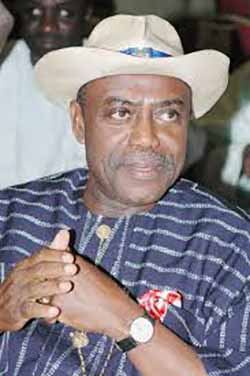By Ebuka Chukwunwike
THE Economic and Financial Crimes Commission is tasked with awesome responsibility. Since its inception in 2003, the Commission ought to have a proud history. The mandate it is saddled with is of critical importance to the country. Section 47 of the enabling Act (2004) mandates the commission to combat financial and economic crimes. The agency is also empowered to prevent, investigate, prosecute and penalize economic and financial crimes as well as enforce the provisions of other laws and regulations relating to economic and financial crimes, including Money Laundering Act 1995, the Advanced Fee Fraud and other fraud-related offences Act 1995, among other things.
However, anti-graft agencies in other countries saddled with similar tasks have well-established traditions in the way they discharge their duties. These traditions do help to protect their integrity and ensure public confidence. And to do this most effectively and efficiently, the agency should avoid the misuse of prosecutorial power. In that regard, the EFCC must recognize that it is an institution, not a person.
Sadly, over the years, EFCC has, by the way it has handled some of the cases it investigated ignited a political firestorm, thereby creating the impression (perhaps rightly so) that it is selective and maybe, doing the bidding of those in power. That could bring the credibility of the commission under a huge cloud of suspicion.
Of course, opinions differ on whether indeed, EFCC means well in the discharge of its duties. Again, that brings into focus one of the past cases handled by the agency. Not long ago, during courtesy visits to some media houses in the country, the acting Chairman of the EFCC, Ibrahim Magu said that the inability of the agency to prosecute former governor of Rivers state, Dr. Peter Odili was because of a “perpetual injunction” by a court. Magu also claimed that the Court of Appeal has further frustrated the effort of the commission by refusing to list its appeal since 2008.
EFCC prosecutor, Mr. Johnson Ojogbene, who accompanied Magu on the media tour had also claimed that the commission was always handicapped whenever the issue of injunction was involved, because, in his words, “there is nothing we can do but to obey it”.
Let’s refresh our minds on how Odili’s travails began. It all started in January 2007 when the EFCC under Mallam Nuhu Ribadu issued what it called an “interim report” on the tenure of Odili . We all knew how EFCC under Ribadu looked like.
The interim report claimed it discovered a trove of financial fraud of over N100bn belonging to Rivers State allegedly diverted by Odili. Recall that these allegations came just at the time Odili had indicated his ambition to contest the office of the presidency under the platform of the Peoples Democratic Party (PDP).
However, Odili did not allow these allegations go unchallenged. He understands the value of perseverance in confronting obstacles in life. On February 22, through the then state Attorney General and Commissioner for Justice, Odein Ajumogobia, SAN, he filed a suit challenging the powers of the EFCC to probe the affairs of the state government. He argued that the attempt by the EFCC was “prejudicial to the smooth running of government in Rivers state”.
It was a full trial. All parties in the suit were fully represented by counsels.. And on March 23, 2007, Justice Ibrahim Buba of the Federal High Court, Port Harcourt who heard the case, granted all the declaratory and injunctive reliefs sought by the plaintiff. These include a declaration that the EFCC and other defendants be stopped from publicizing the so-called interim report and an injunction restraining EFCC from further action regarding the alleged financial and economic crimes allegedly committed by Odili.
Besides, Odili filed another suit against the agency and the Attorney General of the Federation from any attempt to arrest him. The suit sought to enforce the judgment of Justice Buba by way of exparte order. Though the learned judge declined to grant the prayer, he however held that his earlier judgment of March 7, 2007 was binding on all parties. This was what the EFCC erroneously calls perpetual injunction secured by Odili. Contrary to what the agency has laboured to make the public believe, it is not. To say that the Court granted Odili permanent injunction is to twist the truth.
Even if it was a perpetual injunction, yes, a High Court can give a perpetual injunction. But like all High Court judgments, it is appealable, and a case of this nature is not time-barred. Therefore, the excuse by EFCC that the case is being frustrated at the Court of Appeal in Port Harcourt is a schoolboy excuse. Very laughable. The truth is that the so-called interim report was a shoddy investigation that left many loopholes that any diligent defence attorney would take advantage of. That’s exactly what Odili’s lawyers did.
Altogether, anyone familiar with this case and the attempt to reopen it knows it is a politically motivated renewal of a previously shuttered case with the aim of getting at some people in the never ending political crisis in Rivers state. It is vital that the EFCC should not seek the spotlight for its own advancement by trying to secure conviction at all costs.
As some learned minds aptly put it, ‘justice allows neither for self-aggrandizing crusaders on high horses nor for passive bureaucrats wielding rubber stamps from the shadows’. Justice demands responsibility, not a witch-hunt.
One is not saying that EFCC committed a serious error by trying to reopen the Odili case, or indeed all previous high-profile cases. Rather, I am saying that the agency should avoid using the fruits of investigation as a smoking gun for politicians to settle scores. In other words, EFCC should not allow itself to be sucked into or intimidated by pressure from the powers that be to use it as instrument to punish perceived enemies. That will defeat the purpose of setting up the commission.
Chukwunwike writes from Port Harcourt.

